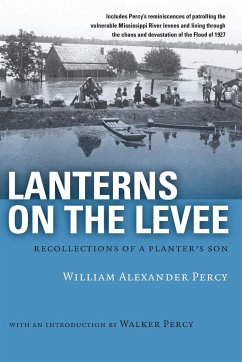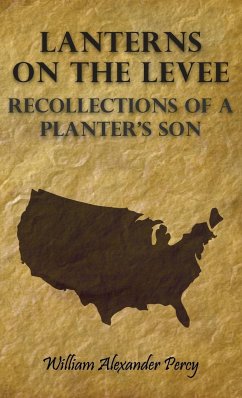Born and raised in Greenville, Mississippi, within the shelter of old traditions, aristocratic in the best sense, William Alexander Percy in his lifetime (1885--1942) was brought face to face with the convulsions of a changing world. Lanterns on the Levee is his memorial to the South of his youth and young manhood. In describing life in the Mississippi Delta, Percy bridges the interval between the semifeudal South of the 1800s and the anxious South of the early 1940s. The rare qualities of this classic memoir lie not in what Will Percy did in his life -- although his life was exciting and varied -- but rather in the intimate, honest, and soul-probing record of how he brought himself to contemplate unflinchingly a new and unstable era. The 1973 introduction by Walker Percy -- Will's nephew and adopted son -- recalls the strong character and easy grace of the most extraordinary man I have ever known.
Hinweis: Dieser Artikel kann nur an eine deutsche Lieferadresse ausgeliefert werden.
Hinweis: Dieser Artikel kann nur an eine deutsche Lieferadresse ausgeliefert werden.








